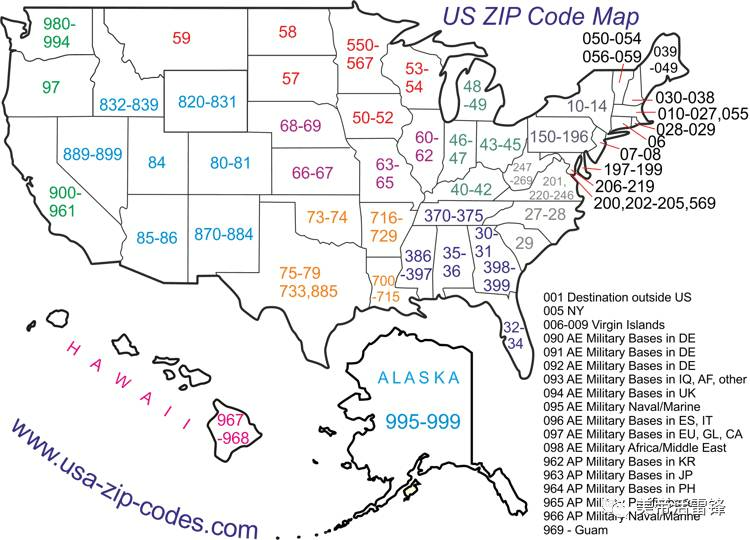What is a Zip Code?
A zip code is a series of numbers assigned to different geographic areas to help facilitate the efficient delivery of mail and packages. These postal codes are widely used in the United States and many other countries worldwide. The term “ZIP” stands for “Zone Improvement Plan,” emphasizing its role in improving mail delivery efficiency.
Why Are Zip Codes Important?
Zip codes serve multiple purposes beyond just mail delivery. Here are some key reasons why they are essential:
- Efficient Mail and Package Delivery: Postal services use zip codes to sort and deliver mail quickly and accurately.
- Geolocation and Navigation: Businesses and mapping services use zip codes to pinpoint locations and improve navigation systems.
- Demographic Analysis: Businesses and government agencies use zip codes to analyze population demographics, economic status, and consumer behavior.
- Emergency Services: Zip codes help emergency responders locate addresses quickly and provide timely assistance.
- Online Shopping and Service Availability: E-commerce platforms use zip codes to determine shipping costs, delivery times, and service availability.
How to Find a Zip Code?
Finding a zip code is easier than ever, thanks to various online tools and databases. Here are the best ways to look up zip codes:
1. Use an Online Zip Code Finder
Websites like zipcodefinderpro.weebly.com and zipcodelookuphub.weebly.com provide easy-to-use search tools. Simply enter the city, state, or street address to get the corresponding zip code.
2. Use Search Engines
Typing a city or address followed by “zip code” in Google or Bing can quickly retrieve the needed information.
3. Check Official Postal Service Websites
Most national postal services have a zip code lookup tool on their websites. For example, the USPS (United States Postal Service) provides a zip code finder on their official site.
4. Use Mapping and Navigation Apps
Google Maps, Apple Maps, and other navigation apps display zip codes when searching for specific locations.
5. Check Utility Bills or Official Documents
If you need your own zip code, it’s often listed on utility bills, bank statements, or identification documents.
How to Use a Zip Code Finder Effectively?
To get the most accurate results when using a zip code finder, follow these tips:
- Enter Complete Address Details: If searching for a specific location, include the full street address, city, and state.
- Use the Right Format: Some countries use alphanumeric postal codes, so ensure you input data correctly.
- Verify with Multiple Sources: If unsure, cross-check the zip code with other reliable sources like postal service websites.
Types of Zip Codes
Zip codes can be categorized into different types based on their functions:
1. Standard Zip Codes
These are the most common zip codes used for residential and business addresses.
2. PO Box Zip Codes
Specific zip codes assigned to post office (PO) boxes rather than physical street addresses.
3. Military Zip Codes
Special zip codes used for military addresses, typically under the APO (Army Post Office) and FPO (Fleet Post Office) systems.
4. Unique Zip Codes
Used for large organizations, businesses, or government agencies that receive high mail volumes.
5. ZIP+4 Codes
An extended version of the standard 5-digit zip code, providing more precise location details.
Zip Codes Around the World
While the term “zip code” is primarily used in the United States, other countries have their own postal code systems:
- Canada: Uses a 6-character alphanumeric postal code (e.g., M5V 3L9).
- United Kingdom: Uses an alphanumeric system with varying lengths (e.g., SW1A 1AA).
- Australia: Uses a 4-digit numeric postal code (e.g., 2000 for Sydney).
- India: Uses a 6-digit PIN code (e.g., 110001 for New Delhi).
Fun Facts About Zip Codes
- The first-ever zip code system was introduced in 1963 by the USPS.
- The lowest zip code in the U.S. is 00501 (Holtsville, NY), used by the IRS.
- The highest zip code is 99950 (Ketchikan, Alaska).
- Beverly Hills’ famous zip code is 90210, thanks to the popular TV series “Beverly Hills, 90210.”
Conclusion
Zip codes play a vital role in everyday life, from mail delivery to location tracking and demographic research. Whether you’re sending a letter, ordering online, or looking up an address, a zip code finder is an essential tool. Make use of online resources like zipcodefinderpro.weebly.com and zipcodelookuphub.weebly.com to quickly and accurately find the zip codes you need.
